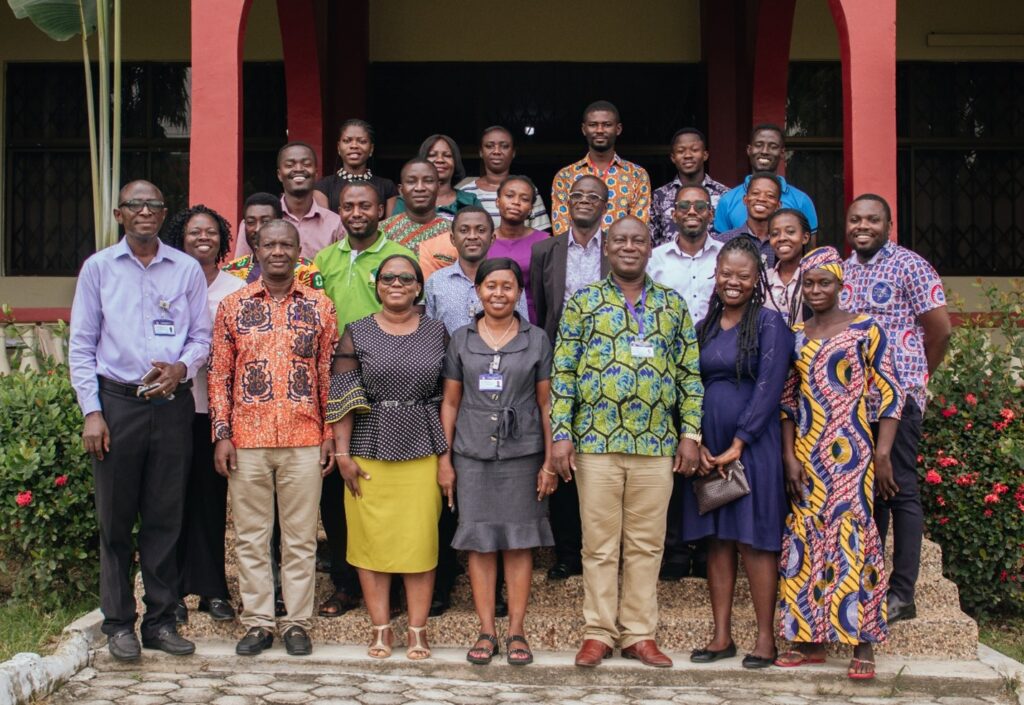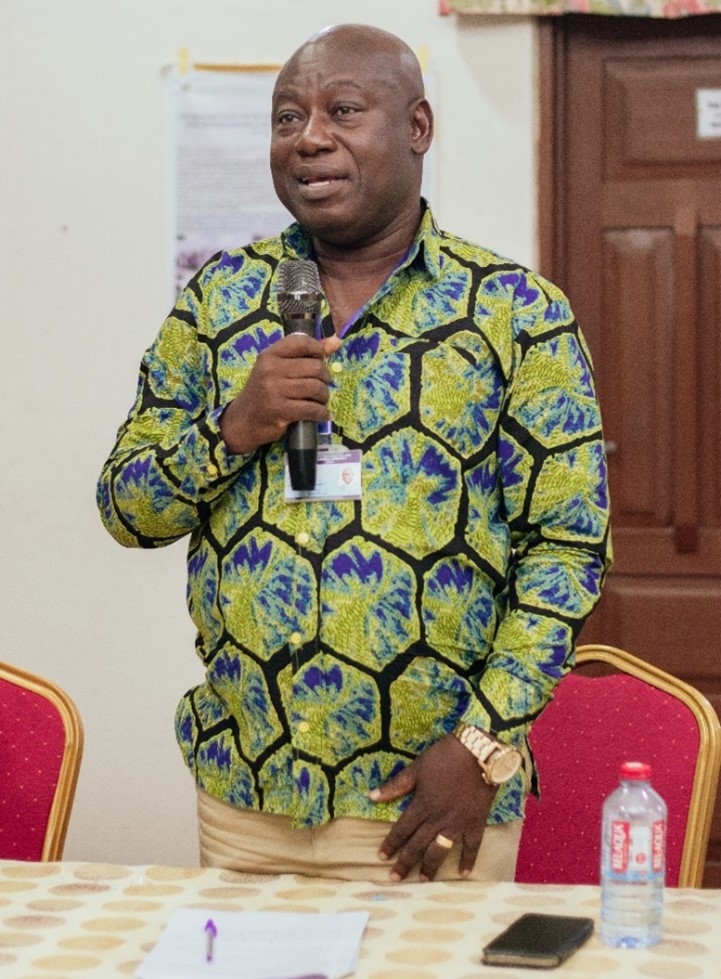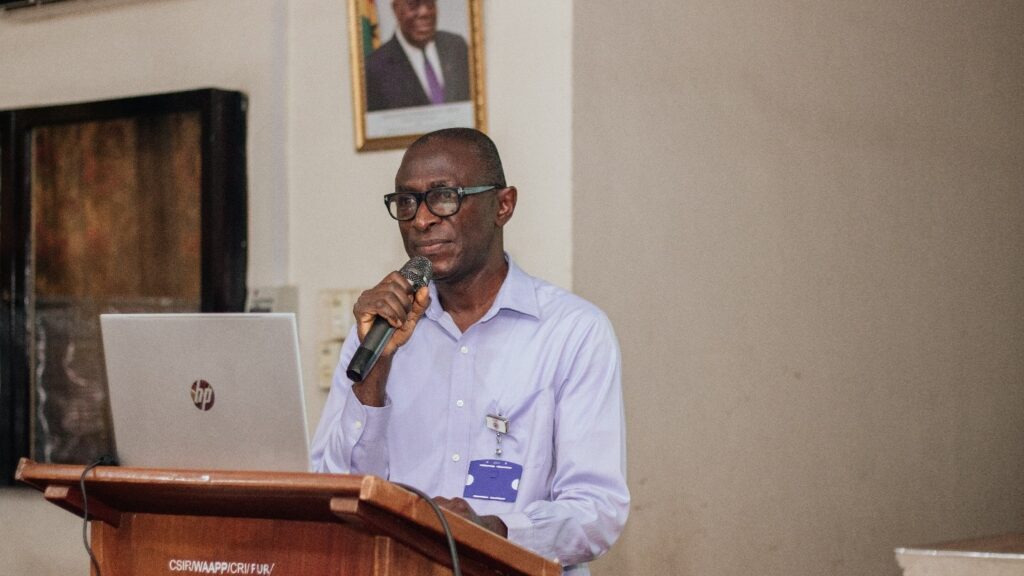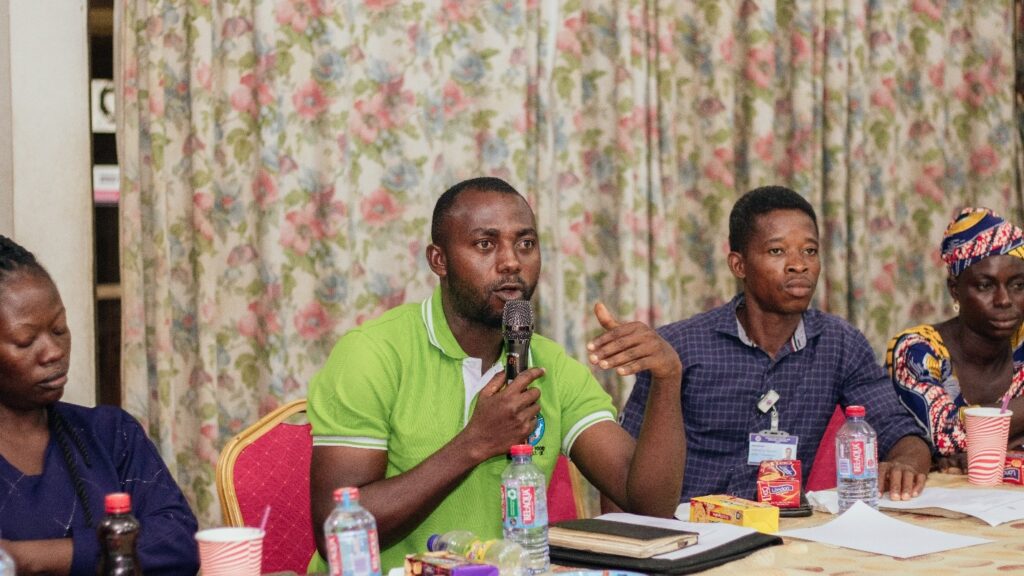PROSSIVA-YAM PROJECT PLANNING AND STAKEHOLDERS MEETING HELD AT CSIR-CRI

The Program for Seed System Innovation for Vegetatively-propagated crops in Africa (PROSSIVA) project at the CSIR-Crops Research Institute held its planning and stakeholders meeting on Wednesday, 23rd May, 2023 at the CSIR-Crops Research Institute
The PROSSIVA project is an innovative 5-year project that aims to enhance the efficiency, productivity, and profitability of vegetatively-propagated crop (VPC) seed systems in Africa through research and delivery of innovations that will overcome seed system bottlenecks. The project is funded by the Bill & Melinda Gates Foundation (BMGF) and is being implemented by 25 partner institutions comprising CGIAR centers, national research institutions, and private sector partners across five countries—Ghana, Nigeria, Rwanda, Tanzania, and Uganda. The CSIR-CRI is implementing the yam component of the project.

Other components include banana, cassava, sweet potato and a cross-cutting component that addresses issues. Despite the importance of yam as a food security crop in Ghana, its seed system is underdeveloped, thus making it difficult for producers to get disease-free planting materials of improved varieties. The planting materials for yam are also perishable, bulky, hard to transport, and susceptible to the transmission of diseases and pests.
The meeting brought together members of the project team, including the Director of CSIR-CRI, Prof. M.B. Mochiah, agricultural extension agents, seed yam entrepreneurs and researchers. In his welcome address, Prof. Mochiah praised the members of the project team for bringing the project into fruition. He was especially grateful to the Deputy Director-General of the CSIR, Prof. Marian Dorcas Quain for being very instrumental and leading the efforts at securing the project.
He called on research scientists working on the project, farmers and seed yam entrepreneurs to work assiduously in ensuring that all project targets are met.
“Ghana’s yam is highly regarded globally, and we want to make sure that, clean and quality yam planting materials are readily available to farmers by the end of this project”, he stated. He also called for greater commitment from all team members to ensure success of the project. Presenting on the project and the purpose of the meeting, the project leader, Mr. David Appiah-Kubi, a Research Scientist with the Tissue Section of the Institute, bemoaned the under-developed nature of seed systems for vegetatively-propagated crops (VPCs) as well as the unavailability of seed entrepreneurs in Ghana. He also identified several challenges facing the seed yam value chain in Ghana.

Mr. Appiah-Kubi further indicated that the goal of the yam component of the PROSSIVA project is to develop detailed research design and implementation plan on technology, marketing, and institutional innovations, focusing on accelerated uptake and diffusion of clean improved seed yams. He also stated that the project is expected to have achieved a number of things after the 5-year period. These include the optimization of methods for increased multiplication of plantlets, microtubers and mini-tubers in the laboratory, screenhouse and fields, the formalization and identification of seed yam entrepreneurs and the development of product catalogues. Mr. Appiah-Kubi also presented the project’s work plan for the first year which comprised technological, marketing, and institutional innovations.

Yam farmers who were invited to the meeting expressed profound excitement and hope about the project. They promised to collaborate with the Institute in achieving all set targets.

In her closing remarks, the Deputy Director-General of CSIR, Prof. Marian Quain expressed her gratitude to the International Institute of Tropical Agriculture (IITA) for collaborating with CSIR-CRI to achieve the project objectives. She further stated that, the project is focused more on answering outstanding research questions on seed yam production. It was her hope that all research outputs developed by the project will be adopted and upscaled by the private sector and other stakeholders.

List of contributors: Mr. Appiah-Kubi, Dr.(Mrs). Ruth Prempeh, Dr. Victor Amankwaah, Bernard Sakyiamah, Enoch Bobie Agyemang
